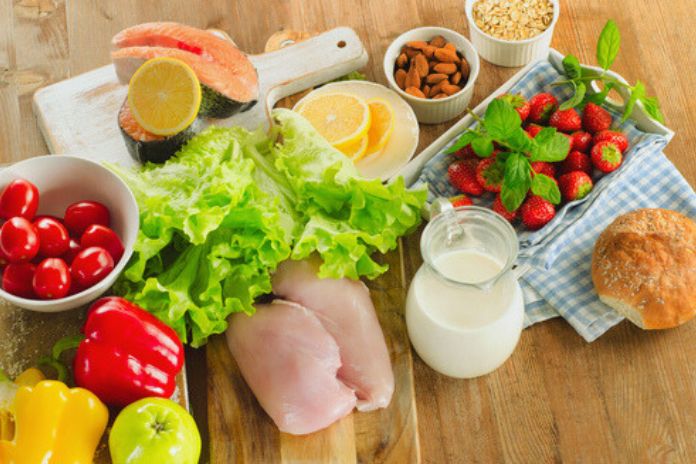Much is said about the importance of maintaining a healthy and balanced diet. Despite this, only some people understand these concepts. Many questions hang in the air: Can I eat a brigadier? Can I have wine? How much does it influence physical health?
We will see this below: why is it so important to maintain a healthy diet? Let’s start by understanding some basic food concepts and objectively. Keep reading.
What Is A Portion Of Food?
For starters, what is food? All substances living beings use as a source of matter and energy to carry out their vital functions can be included in this category. This means that in addition to humans, all animals and even plants must eat daily!
Currently, we can subdivide foods into three classifications:
- In nature: these are foods that have not undergone any physical alteration or addition of substances such as preservatives and flavor enhancers;
- Processed foods: these can be defined as foods that have added substances such as salt and sugar to make them durable and more palatable;
- Ultra-processed foods: These foods go through several industrial processes that prepare them for consumption.
What Makes Up Food?
In addition to knowing what food is, it is important to understand what is part of its composition. Thus, we have that food is made up of substances called nutrients. Therefore, they are divided according to their functions:
- Energetics: carbohydrates and lipids, which have the main function of providing energy to cells;
- Structural: amino acids present in proteins and even lipids are foods that help build body structures;
- Regulators: are the vitamins and mineral salts that regulate various biological functions.
The Problems Of Not Maintaining A Healthy Diet
A healthy diet can help the body’s natural functioning and prevent numerous diseases. Therefore, there are some situations where the lack of nutrients can contribute to advancing pathologies or even metabolic processes that degrade lean body mass.
In this sense, it is important to be aware of some conditions that may arise if the diet is not ideal.
Muscle Catabolism
Muscle catabolism is a natural metabolic process. In this process, the body makes simple molecules from more complex molecules.
An example is the production of amino acids (molecules that help muscle growth) from proteins (a nutrient found in various foods).
In this sense, one should have a healthy diet that meets the need for carbohydrates, proteins, and lipids. Otherwise, the body will use the substances already present in processes aimed at muscle growth.
A common case of this happens when the body uses the proteins in the muscle as an energy source. This can lead to a decrease in lean mass. This causes you to lose muscle and keep body fat, which is undesirable.
Anemia
Another dangerous consequence of not maintaining a healthy diet is anemia, a clinical condition in which the individual significantly reduces the amount of hemoglobin in his blood.
The anemic condition directly affects the oxygen transported by red cells in the body. The symptoms, in turn, are diverse and can range from simple fatigue to fainting.
In addition, anemia can occur due to a lack of nutrients, such as a deficiency of B vitamins and iron. Therefore, a healthy diet is extremely important in treating this clinical condition.
The treatment of anemia can use pharmacological supplements such as Ferric Gluconate, Ferro Carbonyl, and others. The fundamental thing, however, is always to seek medical help as soon as the suspicion of the condition arises.
Macronutrients Or Micronutrients?
Macronutrients can be defined as all nutrients the body needs in large amounts. There are, in all, three different types of macronutrients: carbohydrates, proteins, and lipids.
On the other hand, micronutrients are organic substances that participate in many transformations of cellular metabolism, but they are not needed in large amounts. The main examples of micronutrients are vitamins and minerals.
What Is The Relationship Between Healthy Eating And Physical Activity?
A healthy diet can reduce fatigue, prevent injuries and even help with muscle recovery. In sports with a high energy demand, the practitioner’s diet must be rich in carbohydrates, moderate in proteins, and low in lipids. Let’s take a look at some of these nutrients below:
Carbohydrates, first of all, can be classified as the main energy source for our body. It is the most important macronutrient for energy, contributing to sports performance.
In this sense, a hypocaloric diet is necessary for weight loss. In this way, consulting an expert in the field is essential. That’s why consultation with a nutritionist specialist in the area is important!
Daily media advertisements advocate it exacerbated the supplementation of various vitamins and mineral salts. These are extremely important micronutrients for the human body.
Essential Nutrients In Healthy Eating
As previously mentioned, carbohydrates have the main function of providing energy to cells. Therefore, they can be classified as energy nutrients. Bread, pasta, and bananas are carbohydrates we tend to consume highly.
The proteins we eat provide most of the amino acids our body needs. Meat, eggs, milk, grains, nuts, and vegetables are protein sources.
In addition to their structural function, proteins are regulators of chemical processes. Every cell reaction is made possible by the activity of a type of protein.
Lipids, in turn, are highly energetic elements. Thus, the consumption of this nutrient should be moderate, especially when dealing with saturated fats, which are associated with increased cholesterol levels and triglycerides.
We have two types of lipids:
- Saturated lipids (bad): cheese, ice cream, french fries, fatty meats, and others;
- Unsaturated lipids (good): olive oil, salmon, avocado, etc.
In addition, numerous essential functions in our body need lipids, such as Thermal and physical protection, transport of vitamins, the composition of the cell membrane, production of hormones, etc.

